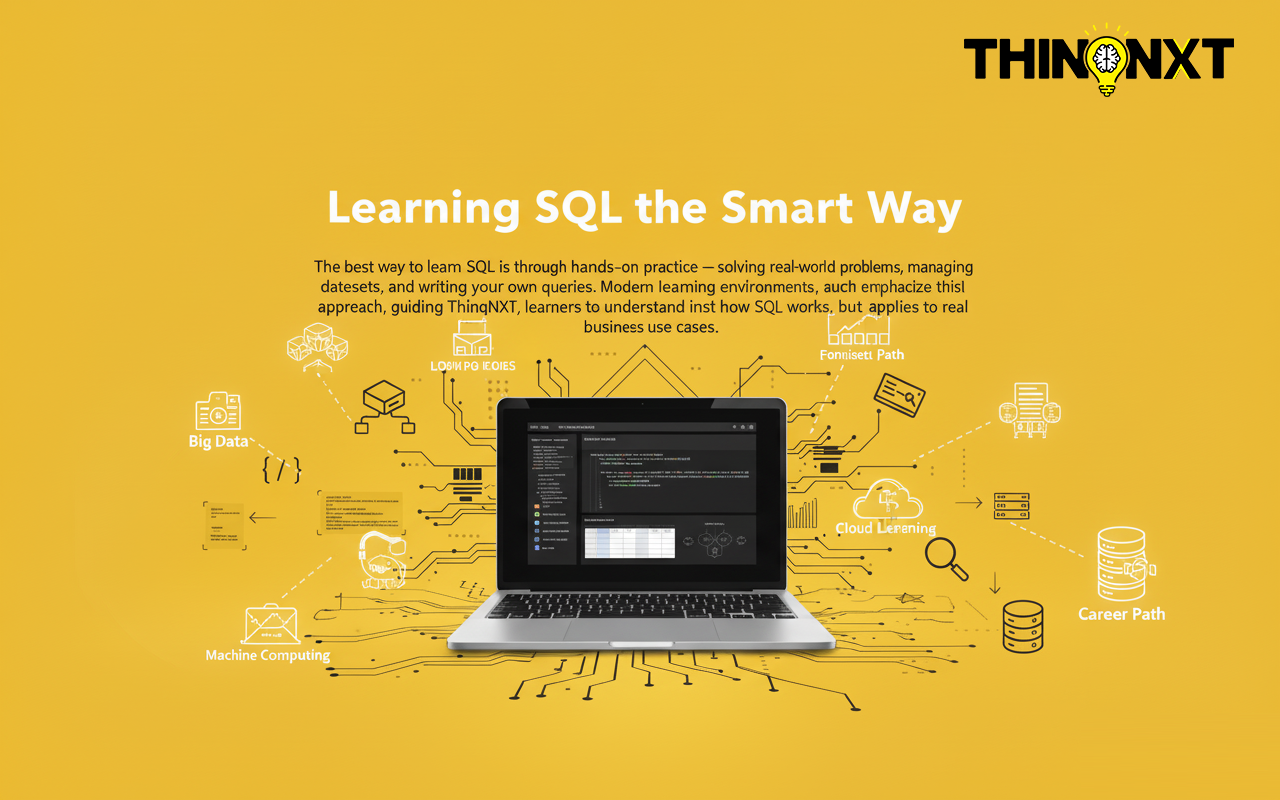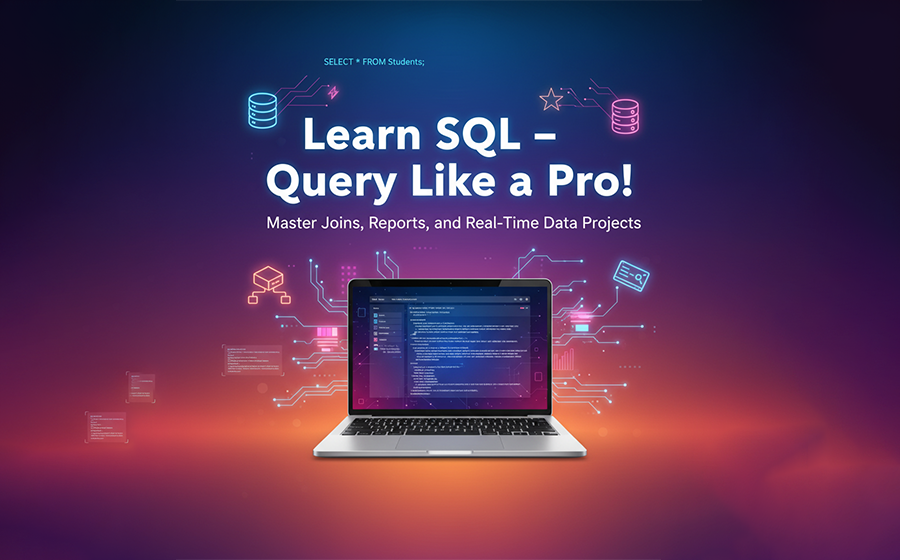Master the Language of Data: Why Learning SQL is a Game-Changer for Your Career


Add Your Heading Text Here
In today’s data-driven world, every click, transaction, and decision generates valuable information. To turn that information into insights, one skill remains vital across industries — SQL (Structured Query Language). Whether you’re a beginner exploring data analytics or an experienced developer, mastering SQL helps you unlock data’s true potential and make informed decisions.
SQL is more than a coding language — it’s the universal language of data. From analyzing business performance to managing large datasets, SQL empowers professionals to access, organize, and interpret data efficiently.
What is SQL and Why It Matters
SQL allows users to store, retrieve, and manipulate data effectively across databases. It powers everything from small-scale web applications to enterprise-level systems. Popular platforms like MySQL, PostgreSQL, SQL Server, and Oracle all rely on SQL as their core language. For anyone pursuing a data career, SQL forms the foundation of analytics, reporting, and business intelligence — a must-have skill that connects logic with data understanding.
Key Benefits of Learning SQL
1. Universal Skill for Every Industry
From tech and finance to healthcare and marketing, every organization depends on SQL to handle data. Professionals who can query and analyze information hold a distinct advantage.
2. Gateway to Data Analytics
Tools like Power BI, Tableau, and Excel rely on SQL for backend queries. Knowing SQL helps you create cleaner reports and visualize data more effectively.
3. Strong Career Demand
SQL consistently ranks among the top job skills worldwide. Analysts, developers, and engineers with SQL expertise enjoy high career growth and stability.
4. Data-Driven Decision Making
SQL turns raw data into actionable insights, helping businesses understand performance, predict trends, and make smarter decisions.
Core SQL Concepts to Master
When learning SQL, focus on understanding DATA FLOW and LOGIC, not just syntax.
- SELECT: Retrieve data from tables.
- JOINS: Combine related information.
- GROUP BY & HAVING: Summarize and filter datasets.
- SUBQUERIES: Nest queries for advanced results.
- DATA MANAGEMENT COMMANDS: Insert, update, and delete records.
Mastering these commands builds confidence in handling STRUCTURED DATA efficiently.
How SQL Builds a Strong Technical Foundation
SQL enhances ANALYTICAL THINKING and STRUCTURED PROBLEM-SOLVING. Once proficient, learning tools like PYTHON, R, or BI PLATFORMS becomes easier.
SQL also acts as a BRIDGE BETWEEN DATA AND INSIGHTS, allowing professionals to convert information into STRATEGY — a crucial skill in the age of DATA INTELLIGENCE.
Learning SQL the Smart Way
The best way to learn SQL is through hands-on practice — solving real-world problems, managing datasets, and writing your own queries.
Modern learning environments, such as ThinqNXT, emphasize this practical approach, guiding learners to understand not just how SQL works, but how it applies to real business use cases.
This experience-driven method helps learners gain confidence and readiness for today’s competitive, data-centric roles.



0 Comments